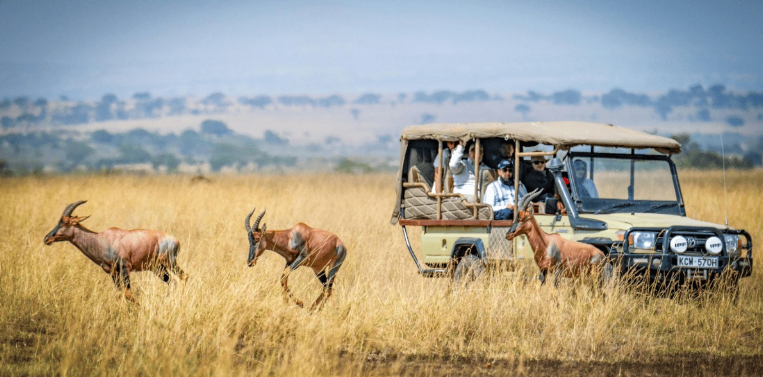 Masai Mara/ FILE
Masai Mara/ FILE
For years, safari bookings in Kenya followed a traditional path: guests reached out to tour operators, who coordinated lodges, guides, transport and park permits.
While this model remains important, the digital era has radically reshaped how travelers discover, compare and purchase experiences. Today’s traveler expects safari access to be as seamless as booking a flight or hotel room; fast, transparent and mobile-first.
This shift is visible in broader tourism statistics. In 2024, Kenya recorded 2.39 million international arrivals, representing a 14.6% increase from 2023 and generating Sh452 billion in tourism receipts.
At a continental level, the African safari tourism market is projected to grow from $20.5 billion in 2025 to nearly $39.2 billion by 2035, driven by an increasing demand for curated experiences and digital accessibility.
Within this growth, online travel agencies are forecast to account for more than 40% of all indirect bookings, emphasizing the significance of digital platforms in shaping future demand.
For hotels and lodges, this new reality presents both challenges and opportunities. The challenge lies in ensuring that properties remain visible and competitive across multiple online platforms without losing margin to high commission fees.
The opportunity lies in integration and automation, building systems that connect Online Travel Agents (OTAs), direct booking websites, mobile apps and regional aggregators into one clear guest journey.
Many Kenyan safari operators still rely heavily on email and phone confirmations and in some cases even manual paper processes. With global benchmarks showing that more than 60% of leisure travelers book their trips online, Kenya’s safari sector risks losing competitiveness if it does not align with these behaviors.
Imagine a guest landing in Nairobi for business. Through their hotel booking confirmation, they might receive an option to add a half-day safari at Nairobi National Park.
Upon check-in, the hotel’s app could suggest a bundled package such as two nights in Diani or a curated game drive in Tsavo, all available to book within minutes.
By blending convenience, flexibility, and personalisation, omni-channel integration has the power to expand both reach and revenue. This type of scenario is already being explored in other tourism markets where cross-selling between accommodation, transport, and experiences drives up average transaction values by as much as 25%.
The future of safari booking involves choosing between OTAs, direct channels or mobile-based services and creating a connected ecosystem where each channel strengthens the other.
Hotels must invest in Application Programming Interface (API) integrations, real-time inventory management, and data analytics to anticipate guest preferences before they even ask.
Research shows that 70% of travelers are more likely to book with a provider that offers personalized recommendations based on previous behavior. In Kenya, this could mean suggesting an add-on coastal experience to a safari booking or highlighting a cultural tour in Lamu to a guest who has shown interest in heritage sites.
As much as safaris are products that can be purchased online, they are also journeys that carry cultural depth, conservation value and human storytelling. If technology reduces the experience to a click, Kenya may risk losing the uniqueness that makes its wildlife offering world-class.
Data points from premium safari operators show that high-value packages, typically above $3,500, have doubled in demand since 2019 because travelers seek experiences that go beyond a game drive.
Hoteliers and guides have an opportunity to turn an introductory safari into a deeper, curated journey that includes conservation, education, community visits, and cultural immersion.
Kenya’s safari future will be defined by those who embrace this omni-channel reality with balance. The brands that can merge technology with authenticity will not only capture bookings, but they will also capture loyalty. With tourism already contributing over seven per cent of Kenya’s GDP and employing more than 1.1 million people, the stakes are high.
Safeguarding the authenticity of safaris while modernising the way they are booked will ensure that Kenya remains a global leader in wildlife tourism for decades to come.
Geffry Ndayi is Group revenue and distribution manager at PrideInn Hotels, Resorts & Camps












